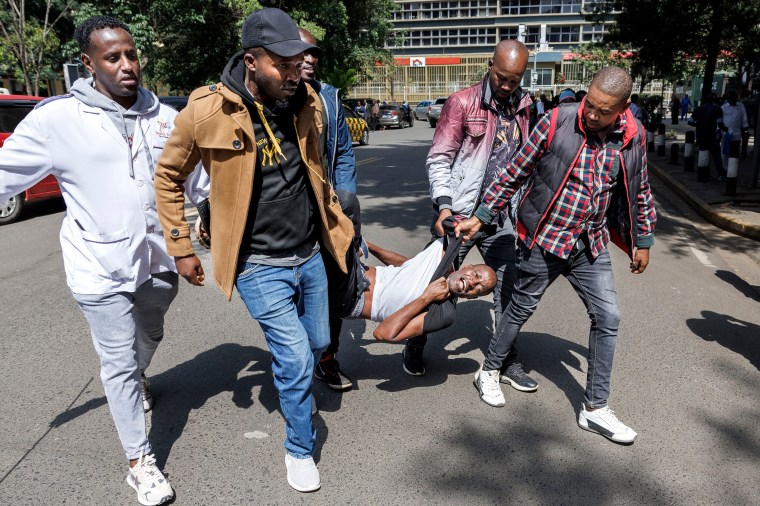Nairobi, June 25, 2024—Kenyan authorities must investigate reports of several journalists attacked while covering protests, desist from intimidating the media, and ensure reliable and secure access to the internet, the Committee to Protect Journalists said Tuesday.
Thousands of Kenyans have taken to the streets several times since June 18 to protest a proposed law that would significantly increase taxes and express broader concerns about governance in the country. Local and regional press rights organizations said that amid the protests, security personnel acted violently against journalists and briefly detained several members of the press. The broadcaster KTN, which is part of the publicly-listed Standard Media Group, reported on Tuesday, June 25, that authorities threatened to shut it down.
Beginning on Tuesday afternoon, the Internet Outage Detection and Analysis (IODA) and Cloudflare, two organizations that detect internet outages, reported disruption to the internet in the country as protestors breached parliament buildings in the capital, Nairobi.
CPJ continues to research reports of press freedom violations connected to the protests; however, due to the ongoing crisis, CPJ was unable to immediately confirm details of the incidents.
“Journalists covering the protests in Kenya are carrying out a crucial public service. Any attempts to hinder or silence them through physical attacks, threats, or detention are unacceptable in a democratic society,” said CPJ Africa Program Coordinator Muthoki Mumo. “Authorities should credibly investigate attacks on journalists, desist from intimidation or censorship of the press, and urgently ensure that the Kenyan public has reliable access to the internet.”
On June 18, police assaulted or briefly detained at least five journalists covering protests, according to separate statements by the Media Council of Kenya, a statutory industry regulator, and the Kenya Media Sector Working Group, an umbrella organization for local and regional media rights bodies. In one of these incidents, police briefly detained Standard Media Group video editor Justus Macharia before pushing him out of a moving vehicle, according to a report by the privately owned media outlet, which added that Macharia sustained “non-life-threatening injuries,” without specifying.
On June 25, freelance journalist Collins Olunga was hit with a teargas canister on his right hand while covering the protests, according to a statement by the International Press Association of East Africa and a report by the state-owned Kenya Broadcasting Corporation (KBC), which interviewed Olunga at the hospital. In that report, Olunga appeared with a bandage on his right hand. CPJ could not immediately confirm the nature of the injuries he sustained.
On Tuesday, IODA and Cloudflare did not indicate the cause of the internet disruption in Kenya, which they documented as also affecting Uganda and Burundi.
In Tuesday statements, telecommunication companies Safaricom and Airtel said undersea cables that deliver internet traffic in and out of the country were experiencing outages. On Monday, the Communications Authority, Kenya’s telecommunication regulator, said it did not plan to disrupt the internet.
Further protests are expected later this week, part of what demonstrators are calling “7 Days of Rage,” according to media reports.
CPJ’s queries sent via emails and text messages to the Ministry of Interior, Kenya National Police Service, and the Communications Authority on Tuesday night did not receive an immediate response.
